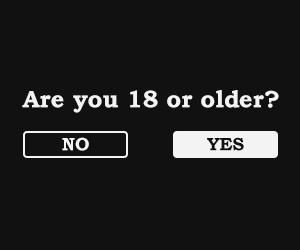SC Clarifies Judicial Remedies for Ombudsman Decisions in Administrative and Cri
Author: 79467545 • 378 views • 2025-02-07 13:02:33
SC Clarifies Judicial Remedies for Ombudsman Decisions in Administrative and Criminal Cases
The Office of the Ombudsman is a powerful institution tasked with investigating and prosecuting public officials accused of wrongdoing. However, there are instances when complainants or accused parties may find the Ombudsman’s decision unfair or erroneous. When this happens, what is the proper legal remedy? Let’s break it down based on case law.
1. Ombudsman’s Decision in Administrative Cases
Remedy: Petition for Certiorari under Rule 65 (Court of Appeals)
In administrative cases, the Ombudsman’s decision is generally considered final and unappealable. However, the Supreme Court has clarified that if the decision is tainted with grave abuse of discretion, the proper remedy is to file a Petition for Certiorari under Rule 65 of the Rules of Court before the Court of Appeals (CA).
Why File Before the CA?
In Eleazar v. Office of the Ombudsman (G.R. No. 224399, August 24, 2020), the Supreme Court ruled that while administrative rulings of the Ombudsman are final, they remain subject to judicial review if there is proof of grave abuse of discretion, fraud, error of law, or gross misappreciation of evidence. The CA, not the Supreme Court, is the proper venue for challenging such decisions.
2. Ombudsman’s Decision in Criminal Cases
Remedy: Petition for Certiorari under Rule 65 (Supreme Court)
For criminal cases, where the Ombudsman either finds probable cause or dismisses a complaint, the available remedy is different. The Supreme Court has consistently ruled that the proper recourse is to file a Petition for Certiorari under Rule 65 before the Supreme Court (SC), not the Court of Appeals.
Why File Before the SC?
In Yatco v. Office of the Deputy Ombudsman for Luzon (G.R. No. 244775, July 06, 2020), the Supreme Court reaffirmed that orders and decisions of the Ombudsman in criminal cases cannot be appealed. However, if the finding of probable cause or dismissal of charges is tainted with grave abuse of discretion, an aggrieved party may file a Rule 65 petition with the Supreme Court within 60 days from notice of the resolution.
Summary: Where to File Your Remedy?
DOWNLOAD HERE:
https://docs.google.com/document/d/18qrUT57tCdQ0wMOkWthv3_8JkZTPRwl-/edit?usp=drive_link&ouid=116464774395733473403&rtpof=true&sd=true
The Supreme Court has made it clear that while administrative rulings of the Ombudsman are final, they are still subject to review by the Court of Appeals if grave abuse of discretion is present. On the other hand, in criminal cases, the only remedy available is a Petition for Certiorari before the Supreme Court, also on the ground of grave abuse of discretion.
Understanding these remedies is crucial for ensuring that due process is observed and that legal rights are protected. If you are involved in a case before the Ombudsman, seeking legal counsel is always advisable to determine the best course of action based on the circumstances of your case.
To share this notes please copy this URL and send it to your friends
Important :
This text must comply to our Terms and Conditions otherwise it will be removed from our Server.





